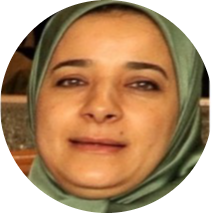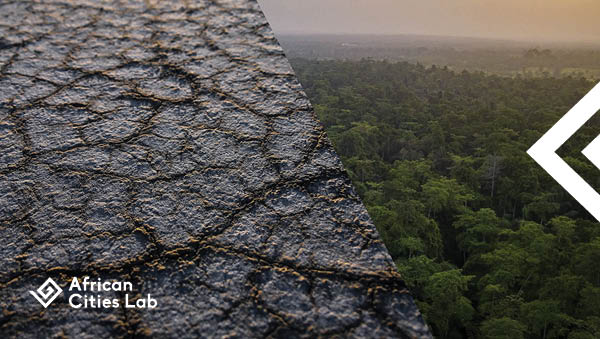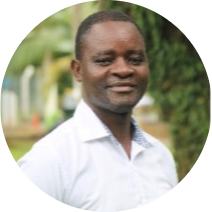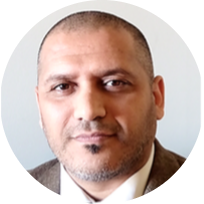About This Course
Africa is witnessing the highest population growth, riddled with urbanization challenges exacerbated by climate change. This course aims at providing learners with an understanding of different dimensions of the interactions between urban economic development and climate change.
Within this context, the course will delve into major urban development related themes such as infrastructure, migration, urban agriculture, and their effects on urban socio-economic development/planning as well as wastewater management. It seeks to show you how these themes can be better adapted to the effects of climate change for more sustainable urban areas in African cities.
The content of this course is important in devising and implementing urban planning and policy initiatives to improve urban resilience for sustainable economic development.
By the end of the course, you will be able to:
- Discuss urban climate change as well as the associated climate challenges and possible solutions including adaptation and mitigation.
- Understand the relationship between climate change, urbanization, and economic growth in the African context.
- Analyse the role of urban planning and design in mitigating the challenges of urban economic development in the context of climate change.
- Recognize the main challenges facing Africa in terms of water supply and management, and sanitation and describe the new paradigm of circular economy in the water sector
- Identify the role and interactions between urban agriculture and urban development as well as climate change adaptation and mitigation.
To achieve this, the course has been divided into the following modules:
- Module 1: Climate change and cities
- Module 2: Climate change and urbanization inter-linkages
- Module 3: Climate change, migration, and effects on the sustainable economic growth of African cities
- Module 4: Climate Change and Africa's water and wastewater management: the case for reuse
- Module 5: Urban agriculture and urban socio-economic development
Course Staff
Dr. Fatima Driouech
Dr. Fatima Driouech is a climate scientist working in the field of climate change and climate services for socio-economic sectors in Africa and MENA region. She holds a PhD in “Sciences of the Universe, Environment and Space” from the National Polytechnic Institute of Toulouse (France) and an Engineer Diploma from the French National School of Meteorology. Prior to joining the International Water Research Institute at Mohammed VI Polytechnic University as Professor, she was leading the National Climate Centre and the National Meteorological Research Centre at the Moroccan Meteorological Directorate. Dr Fatima Driouech is also contributing to international activities and assessments related to climate change and services through, among others, its role as Vice-Chair of Working Group I of the IPCC (Sixth Assessment Cycle) and as a Co-chair of the Standing Committee on Climate Services of the WMO Commission for Services and Applications. She is also co- coordinating the network of Mediterranean Experts on Climate and environmental Changes (MedECC). She has led and contributed to several climate related studies and published papers.
Dr. Victor Ongoma
Dr. Victor Ongoma is a meteorologist, with specialty in climatology and climate change. He holds a PhD (Meteorology) from Nanjing University of Information Science and Technology, China. His current research focuses on climate change, climate services, and sustainable development over Africa. Prior to joining International Water Research Institute (IWRI) at Mohammed VI Polytechnic University (UM6P) as an Assistant Professor of Climate Change Adaptation, he was a lecturer of Physical Geography at University of the South Pacific, Fiji (2019 - 2021). He joined academia as a lecturer in Meteorology at South Eastern Kenya University, in Kenya (2013 - 2019), from Kenya Meteorological Department in Kenya where he served as a Meteorologist (2011 - 2013). In 2018, he was a Visiting Fellow at Center for African Studies (CAS), Harvard University. Victor is a team player who has collaborated with other researchers and published widely. He has reviewed manuscripts and book proposals for over 30 journals and publishers.
Dr. Tarik Chfadi
Dr. Tarik Chfadi is a Permanent Professor at Mohammed VI Polytechnic University (UM6P) and a water economist at the International Water Research Institute. He earned his MSc and Ph.D. in Agricultural and Resource Economics from the University of Maryland. He graduated from the Ecole Mohammadia School of Engineers. He joined the Direction de la Recherche et de la Planification de l'Eau, where he worked as Principal Engineer in Water Quality. Dr. Chfadi previous academic appointments include Assistant Professor position in the Agribusiness program at the United Arab Emirates University (UAEU) and a Postdoctoral position on the Monitoring and Evaluation of training programs at the Joint Institute for Food Safety and Applied Nutrition (JIFSAN) at the University of Maryland. While in Grad School, he served as consultant at the World Bank in Washington DC on various projects and studies related to water, environment, and economic development. Dr. Chfadi is a Fulbright/MACECE exchange scholar and an AGCD (Belgium) grantee. Pr. Chfadi has published articles in leading academic journals like Food Policy, Sustainable Cities and Society, and Water; he also contributed to several World Bank publications.
Dr. Carlo Alberini
Dr. Carlo Alberini is an architect and urban planner. He obtains the Master in Architecture in 1998, and the PhD in Urban Planning at the School of Engineering – University of Genoa (in 2005). He has been Adjunct Professor at the School of Architecture of Genoa for several years, taking courses on Town Planning and Town Planning History, as well as at the Schools of Architecture in Florence, where he taught courses on Urban Planning, Urban Management, Infrastructures and Urban Development. DHe is author of three monographs referring to urban development processes, sustainable urban and port planning, urban planning and real estate finance. Since august 2018 he’s Senior Research and Education Fellows at the SAP+D of the Mohammed VI Polytechnic University. For the Master on “Resilient, Sustainable and Smart Buildings and Cities” he was Coordinator of the option #1 Cities, teaching modules on analysis of urban contexts in African cities and introduction to real estate finance for sustainable and resilient urban transformation projects. For bachelor’s in architecture, he’s in charge of Design Studio #1 and #2, and Introduction to Environment Ecology and Sustainability.
Dr. Mohamed Chaker Necibi
Dr. Mohamed Chaker Necibi holds a PhD in Environmental Engineering from the University of Sousse, Tunisia, in 2008. After an international research career of more than 10 years in France (UM2, Montpellier), Germany (TUB, Braunschweig) and Finland (LUT, Mikkeli) where he got an Assistant Professor position in circular economy in water treatment. As of September 2019, he joined the Mohammed VI Polytechnic University (UM6P) as a permanent professor at the International Water Research Institute (IWRI). Pr. Necibi and his team work on the development of advanced and sustainable technologies for water treatment, based on the principles of circular economy, and focusing on the optimization and integration of physical, chemical, hydrothermal or biological processes for water reclamation, pollution removal, desalination, resources recovery and bioenergy production. He is the principal investigator of many projects, guest editor for several special issues in Elsevier journals, supervisor and/ co-supervisor of many graduate students, published more than 60 articles in ISI journals, three books on Biomass of Sustainable Applications (RSC), Bioeconomy (Springer), and Circular Economy (Academic Press), and in Stanford university’s list of the world's top 2% of scientists in 2020.
Dr. Terrence Epule Epule
Dr. Terence Epule Epule is an Assistant Professor of Climate Change Adaptation and Sustainability Strategies in Africa at the International Water Research Institute (IWRI) at Mohammed VI Polytechnic University (UM6P) in Morocco. He was previously an Associate Professor of International Farming Systems at UniLaSalle in France and a postdoctoral scholar at McGill University (2016-2019) and University of Montreal (2014-2016), Canada. He obtained his PhD in 2014 from University of Quebec in Montreal (UQAM), Institute of Environmental Sciences. His research is at the interface between climate, agriculture, and adaptations. As such, he works on a variety of topics such as the creation of readiness and climate change mitigation/adaptation performance indexes, crop yield and precipitation gaps and cropping systems vulnerability to droughts. He is also keen on the contributions of agroecology and conventional agricultural methods in impacting crop yields and protecting the environment. He is author of 2 books and about 45 peer review articles as first lead author and three book chapters. At IWRI, he leads the African Climate Change Adaptation Lab (ACCA Lab: https://terenceepuleepule.wixsite.com/epuleterenceepule).







